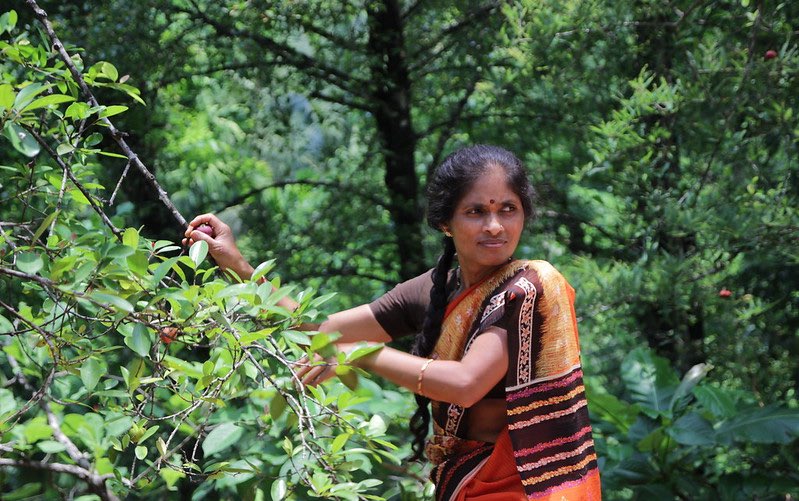Common lands, whether communal forests, pasturelands, or wetlands located close to villages, provide a range of ecosystem services (ES) to local people and society, benefits also known as nature’s contributions to people. They are sources of clean air and water, food and fuel, livelihoods, cultural inspiration, and spiritual fulfillment. According to one estimate, 2.5-3 billion people around the world depend on commons for their livelihoods and to fulfill recreational or spiritual needs. In semi-arid districts in central India, the proportion of income among rural families that is based directly on common-pool resources (CPRs) was estimated at 15%-25%, while even higher estimates were found for African samples. Further, CPRs also offer protection against agricultural risks and are sometimes the only assets to which the otherwise disenfranchised (e.g., the landless) have access. Understanding relationships between these commons and the provision of ES is crucial in order to manage them more sustainably.
Despite these vital contributions, policy makers in India tend to perceive the commons as “wastelands” because their economic value is unknown. A very partial 2001 estimate suggests that land-based commons contribute $5 billion annually to the income of poor Indian households. But the economic value of India’s commons is likely much greater.
As part of the effort to support the Promise of Commons initiative led by the Foundation for Ecological Security (FES) in India, IFPRI and University of South Australia are joining forces to examine the linkages between commons and ES in India. The first step is to assess the area of the commons and then quantify the economic value of the benefits they provide. Our preliminary analysis using benefit transfer valuation method estimates the economic value of India’s commons to fall in the range of $21-$188 billion annually. (The wide range is due to underestimates of some of the ES in the literature).
Drawing on village-level data from the 2011 census, we also estimate that India has over 66 million hectares classified as common lands (figure)—a quarter of total land area, including forest, permanent pastures and other grazing lands, barren and unculturable lands, and culturable wasteland. Forest is the most dominant type, accounting for 50% of common land area —a noteworthy fact as we observe the International Day of Forests (March 21).
About 300-400 million people in rural areas—and particularly marginalized indigenous communities and ethnic minorities—draw various goods and services from these commons to support their livelihoods, including fuelwood, fodder, non-timber forest products (NTFPs), medicinal plants, and grazing space for livestock.
The commons are often considered contested spaces because of weak tenure rights, erosion of local institutions, and restricted rights of local communities to access and manage the resources. We are examining commons as a multifunctional natural capital base and contested space so that they can be recognized more appropriately by public policy and managed sustainably by communities.
India’s natural forest ecosystems have important roles in providing public good ecosystem services, preserving biodiversity, and mitigating anthropogenic emissions. However, forest functions and benefits are regulated, either positively or negatively, by the spaces sandwiched between natural areas and agricultural areas and human settlements. These in-between commons don’t fall into the category of forest (often with officially claimed protection status), nor are they anyone’s property. Their ecological conditions and sometimes their continued existence depend on the strength of local governance, and are vulnerable to pressures from population growth, over-extraction, and under-investment.
As a wifi range extender improves internet access, these in-between commons extend the range of forest ecosystem services and improve their conservation, primarily by facilitating connectivity between natural and agricultural areas. For example, patches of habitat form biodiversity corridors that complement large forested areas. Commons may also act as a buffer between natural and agricultural/human settlement areas; when sustainably managed by communities to meet local needs, they reduce pressure on natural areas.
Our valuation results, to be refined at forthcoming workshops with Indian researchers and practitioners, will feed into a participatory scenario analysis to inform land use planning and investment decision-making. By helping to meet the evidence needs for the Promise of the Commons initiative, this study will help inform FES’s policy advocacy and public engagement.
A newly published landmark review of the economics of biodiversity by Partha Dasgupta of the University of Cambridge highlights why work like ours on the bioeconomics of commons is urgently needed: The collapse of entire ecosystems is a real risk if unsustainable practices continue. Introducing natural capital into national accounting systems is a critical step to correcting these problems.
Harpinder Sandhu is a Senior Lecturer at the University of South Australia; Wei Zhang and Ruth Meinzen-Dick are Senior Research Fellows with IFPRI’s Environment and Production Technology Division (EPTD); Hagar ElDidi is an EPTD Research Analyst.







